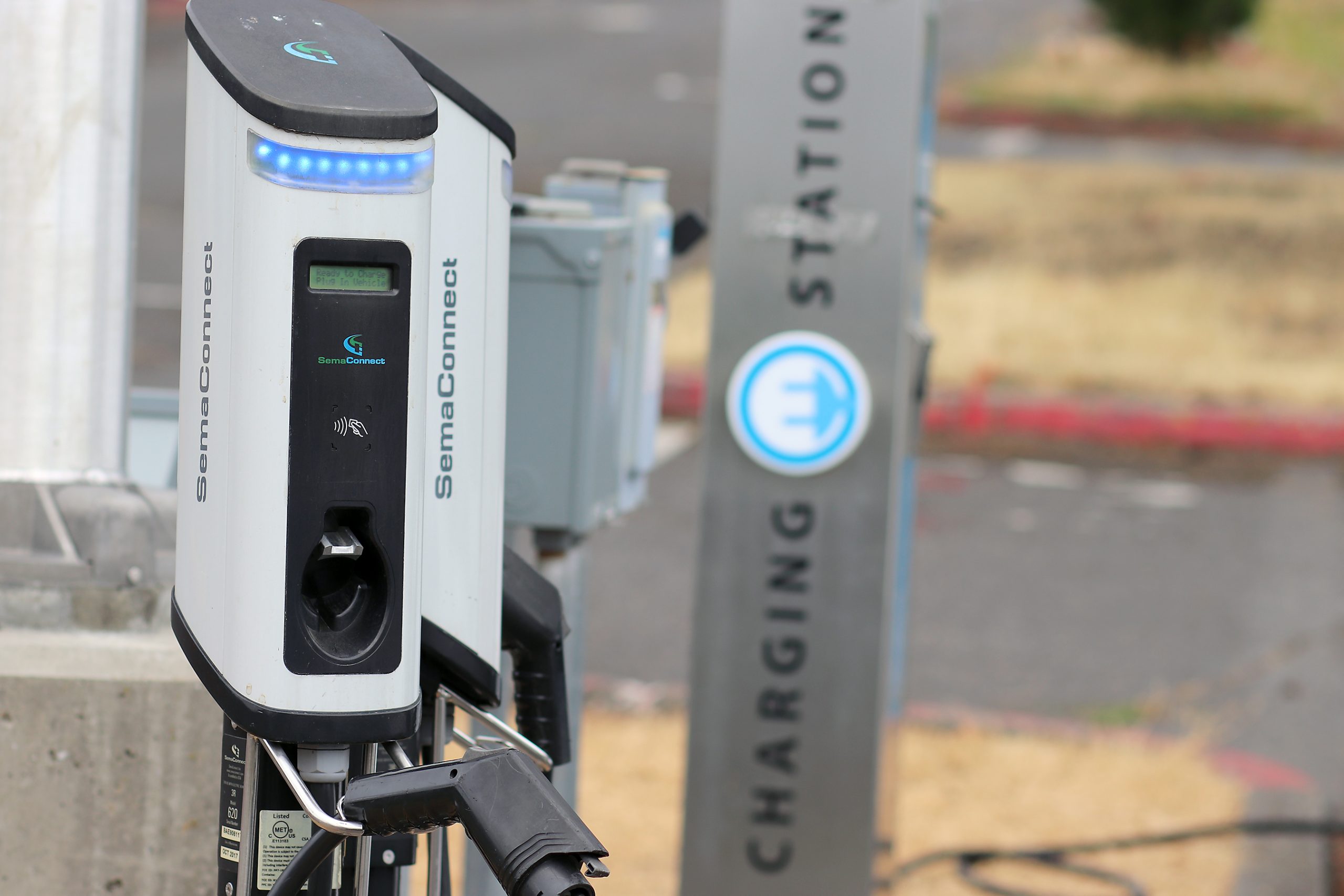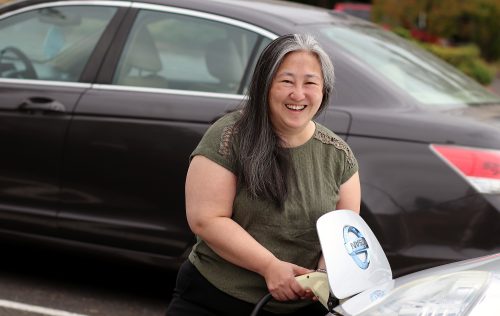This content was published: October 18, 2022. Phone numbers, email addresses, and other information may have changed.
As PCC builds greener buildings, EV charger network grows with it
Story and Photos By PCC Communications.
Sustainability is core to Portland Community College’s mission.
From programs to instruction to building construction, PCC is working toward meeting its climate action goals.
In building construction, PCC has a dozen certified LEED buildings and there are two more on the way as it works to meet its climate action goals. Earning the LEED Gold designation has been the Dealer Service Technology Building and Building 5 addition on the Rock Creek Campus, as well as the Student Union and Cascade Hall at the Cascade Campus, and the Vanport Building in downtown Portland where the college’s Dental Sciences Program is located.

2022 PCC Bond Measure
Portland Community College will have a $450 million bond measure on the Nov. 8 election ballot. If voters pass the proposed bond, funds would go directly to projects that will improve access to higher education. If passed, it is estimated the measure would maintain current tax rates for local homeowners. If it doesn’t, the proposed services would not be provided and the tax rate would decline.
PCC’s Planning & Capital Construction office expects the Health Technology Building at the Sylvania Campus and the Portland Metro Workforce Training Center redevelopment to meet LEED gold standards as well due to sustainable building practices.
“With both new construction as well as remodeling work, we want to move the college toward carbon neutrality,” said Rebecca Ocken, interim director of PCC’s Planning & Capital Construction Office. “Those projects include everything from installing a photovoltaic array on the roof of the HT Building to the college using high-tech wood construction, composed of engineered mass timbers and cross laminated wood panels, at Portland Metro Workforce Training Center.”
Part of PCC’s bond-funded construction has been the implementation of green features. With help of the college’s parking and transportation office, this includes funding the installment of roughly 10 electric vehicle (EV) chargers across PCC’s main campuses (including the OMIC Training Center in Columbia County) to encourage emissions free commuting by its employees, students and community guests.
PCC’s Parking & Transportation Office is upgrading stations when necessary and has plans to add more in the future – including one at the Portland Metro WTC redevelopment and more at other campuses and centers.
“One of the ways we support our climate action plan here at the college is with our commitment to green buildings,” said Steph Fregosi, the analyst with the college’s sustainability office. “Those are built with public money. Often, the new chargers are installed along with the buildings in addition to those added by our parking and transportation program.”
The chargers are readily accessible by anyone who drives onto the PCC campuses. Fregosi added that EV charging stations are one way that helps move society towards a more sustainable future.
“Having EV chargers on campus supports a just transition to a more electric society and really helps people who rent their homes have access to EV charging,” she said. “It also reduces PCC’s carbon footprint, while supporting our climate action goals.”
PCC has been working on carbon neutrality since 2006 and has set a goal of being carbon neutral by 2040. It recently completed its third version of its climate action plan this year to focus on social justice components. And it has paid off as energy retrofits, green buildings and conservation efforts have resulted in a 45% decrease in energy use per square foot since 2006, for example.
With bond work continuing at PCC campuses, the EV charger program will continue to expand.
“We are measuring greenhouse gas emissions from a variety of things, including commuting to campus,” Fregosi explained. “This helps reduce our carbon footprint for people coming to campus. A little bit goes a long way, and together, we can work towards a just energy future.”
For more on PCC’s sustainability efforts, visit www.pcc.edu/sustainability/, or for additional details on the college’s construction plans, visit www.pcc.edu/bond/

